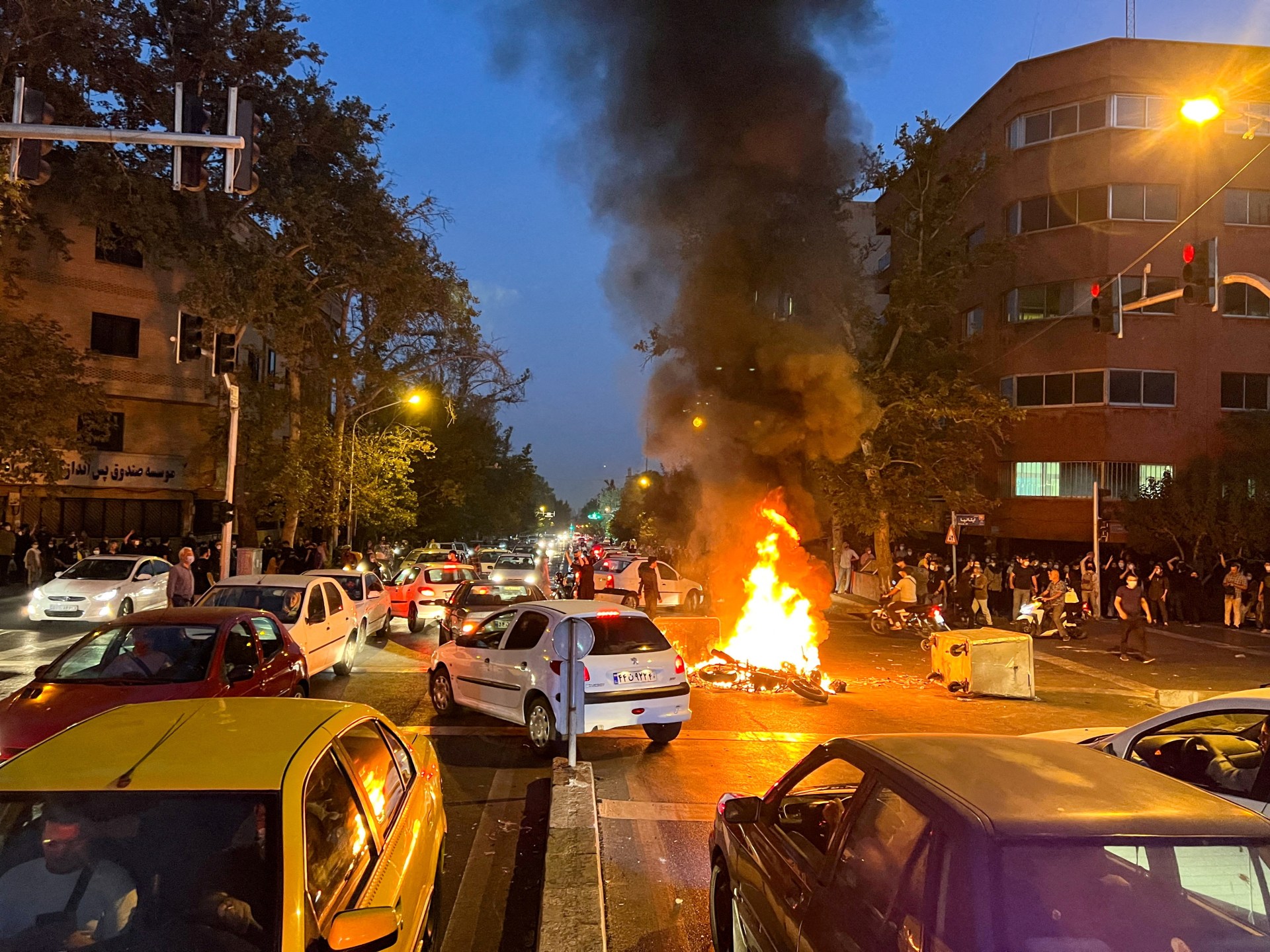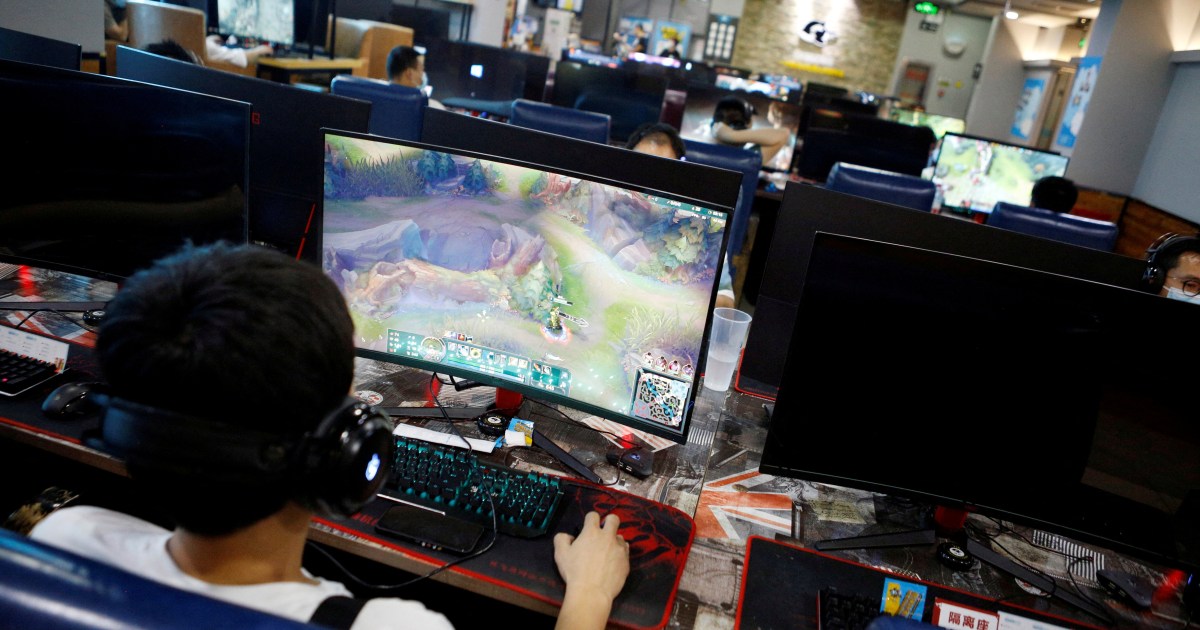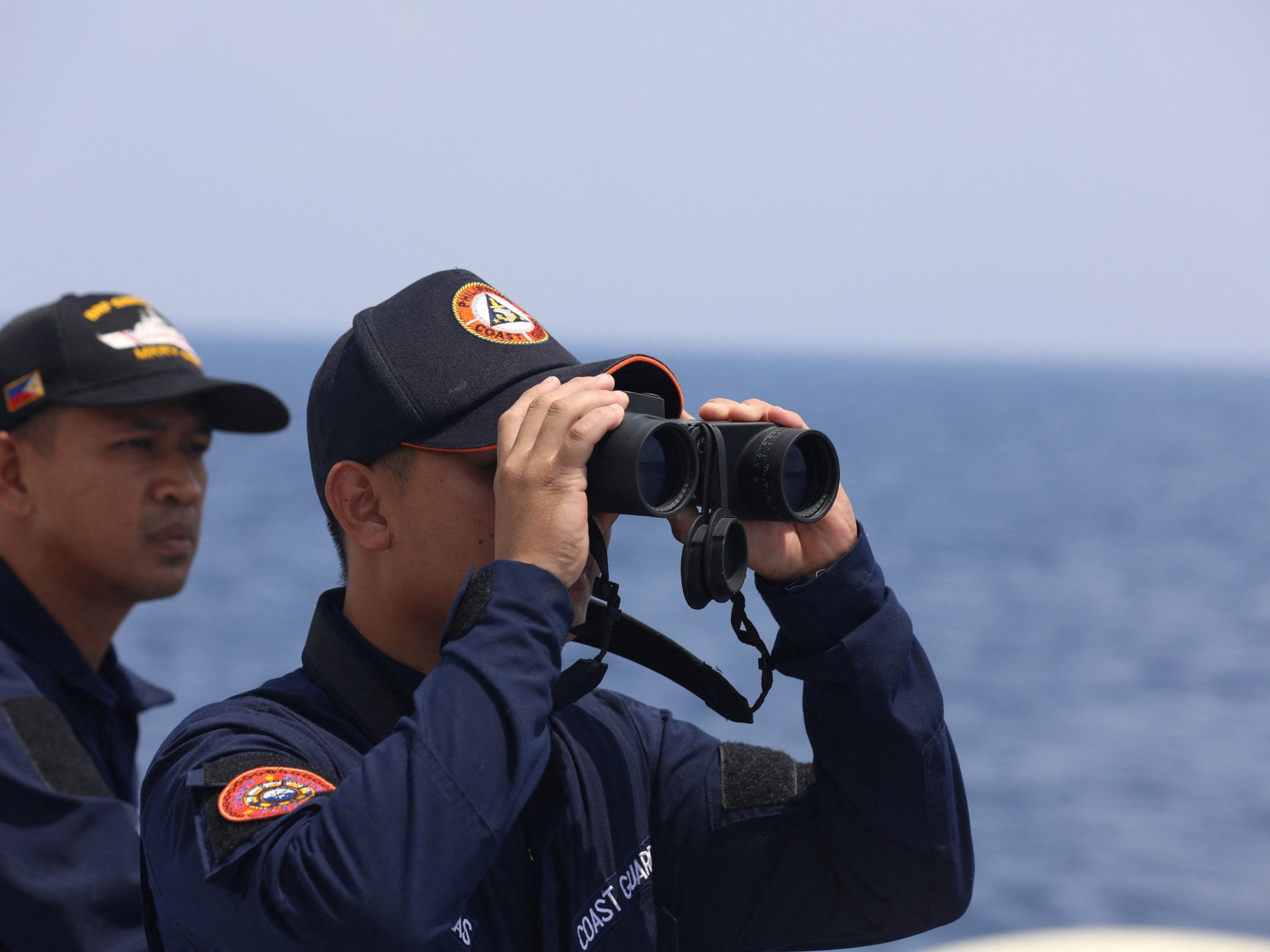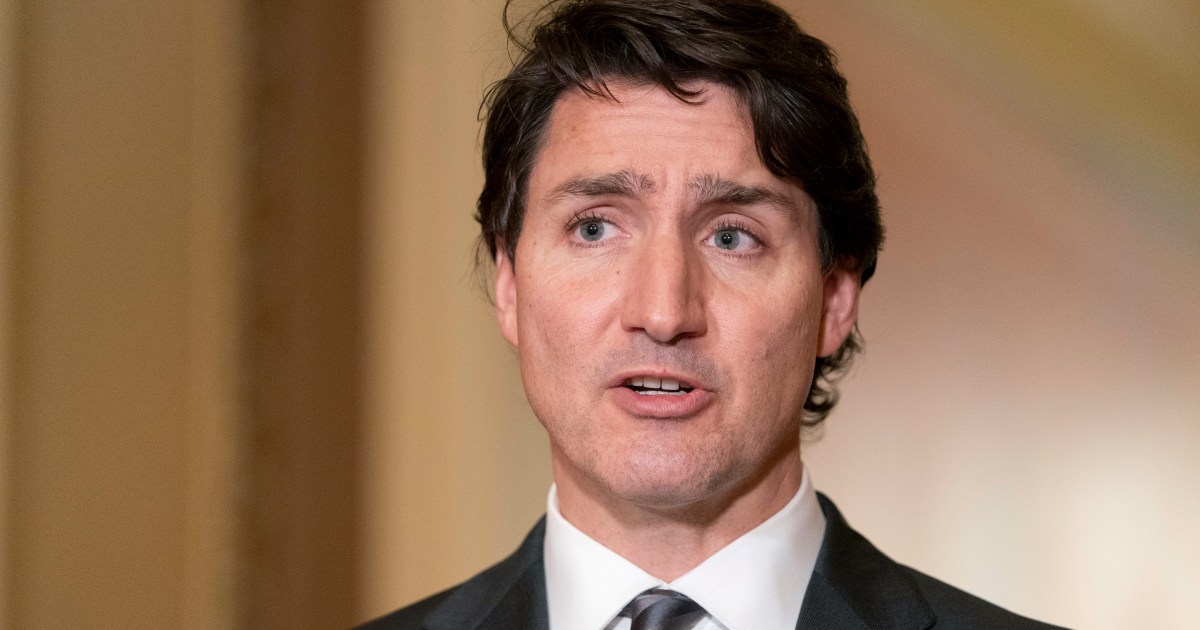Iran sentences five to death over killing of paramilitary member
Authorities in Iran have sentenced five people to death for allegedly killing a member of a paramilitary force affiliated with the country’s elite Islamic Revolutionary Guard Corps (IRGC), state media reported, while 11 others received lengthy prison sentences.
The 16 unidentified defendants – 13 men and three minors – were charged with killing Ruhollah Ajamian, a member of the Basij, a paramilitary volunteer branch of the IRGC, Iran’s state news agency IRNA reported on Tuesday.
The killing reportedly took place in Karaj, near Tehran, in November when a group of men chased and attacked Ajamian with knives and stones, according to IRNA. The report referred to “rioters”, a term commonly used by the government for protesters and anti-government demonstrators gathering in the area at the time.
Prosecutors said Ajamian, 27, was stripped naked and killed by a group of mourners who had been paying tribute to a slain protester, Hadis Najafi.
Najafi was killed on September 21, five days into the wave of protests that erupted across Iran after the death in police custody of 22-year-old Mahsa Amini, who was detained for allegedly violating Iran’s strict dress code.
The five sentenced to death on Monday were charged by the Revolutionary Court, along with eight others. Three boys were charged by the Criminal Court, according to IRNA. Judiciary spokesman Masoud Setayeshi, who was cited in the report, provided no evidence to support the accusations.
The sentences, which IRNA reported can be appealed, come as Iran has been rocked by months of anti-government demonstrations that have been violently suppressed by security forces. The protests, now entering their third month, have since escalated into calls for the downfall of the regime and ruling clerics.
‘Spread fear’
The sentences were condemned by Iran Human Rights (IHR), a Norway-based non-governmental organisation.
“These people are sentenced after unfair processes and without due process,” IHR Director Mahmood Amiry-Moghaddam told the AFP news agency. “The aim is to spread fear and make people stop protesting.”
Iran’s Revolutionary Court regularly hands out death sentences. The court was established following the 1979 Islamic Revolution. According to Amnesty International, Iran executed at least 314 people in 2021.
Last week, Iranian authorities executed four people it accused of working for Israel’s Mossad intelligence agency. It provided no evidence to the public for any of the four men’s alleged crimes.
Also on Tuesday, the country’s semi-official state news agency, Tasnim, said authorities had arrested 12 people it accused of being linked with “anti-revolutionary” foreign agents in Germany and the Netherlands.
According to an IRGC statement cited by Tasnim, the group was planning to procure weapons and act against the country’s security. No further details were provided. The arrests were also reported by YJC.Ir, a news website affiliated with Iranian state TV.
Iran regularly arrests and sentences people on charges related to espionage and has accused Western countries of driving the protests. So far, at least 473 people have been killed and 18,200 arrested in the demonstrations and the security forces crackdown that followed, according to Human Rights Activists in Iran, a group monitoring the protests.
There has been growing confusion over the past few days about the fate of the country’s morality police and Iran’s enforcement of its strict religious dress code. On Sunday, chief prosecutor Mohamed Jafar Montazeri said the morality police had been shut down, in a report published by the semiofficial state news agency ISNA.
The previous day, the prosecutor also said the laws surrounding the wearing of the hijab or headscarf for women were under review, but offered no indication that the country was planning to revoke the law.
For weeks, fewer morality police officers have been seen in Iranian cities. Across Tehran, It has become common to see women walking on the streets without wearing the hijab, particularly in wealthier areas.




